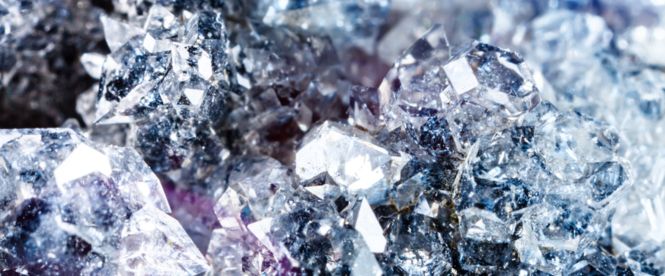STAPLE FOOD NUMBER ONE
Everyone needs it every day, and if it is missing, our body will sound the alarm within a few hours. Water is our number one staple food. However, as with any food, a closer look reveals large qualitative differences. Drinking water is not only water it contains vital minerals that are responsible for various metabolic processes in the body.

HOW DO MINERALS GET INTO DRINKING WATER?
Pure H2O contains no minerals. Only when water is mineralized do these important substances dissolve and become available. They then enter the bloodstream and are used around the human body. Minerals in ionic form are absorbed more effectively by the human body. They serve as building materials for the skeleton and are important components of enzymes and hormones. Biologically active substances, such as hemoglobin, are also formed from electrolytes.
In nature, water is mineralised when water filters through different rock layers from the origin to the source. Depending on the layers involved, they influence the degree of mineralisation. Natural mineral water therefore contains a different concentration of minerals. For people with special needs, such as infants, athletes or pregnant women, the concentration of certain minerals is extremely important. Minerals, such as sodium, may be too high a quantity, others, such as magnesium, may be too little. That is why it is important to know your daily needs and to select your mineral water accordingly.

WHAT MINERALS NEED HEALTHY DRINKING WATER?
Minerals perform a variety of functions in the body, they serve as building blocks and influence chemical processes. They strengthen our bones, stimulate metabolic processes, serve as components for enzymes and hormones and, among other things, ensure a good transmission of nerve impulses. In addition, they also influence the taste of our water.
THE FOLLOWING MINERALS ARE PARTICULARLY VALUABLE AND SHOULD BE CONTAINED IN DRINKING WATER:
| Calcium | Calcium makes up about 25 percent of bone mass. It is important for muscle stimulation transfer and it ensures we have a regular and normal heartbeat. The daily requirement for Calcium is very high, between 1,000 – 1,300 mg. Therefore, having Calcium in drinking water is very important to ensure a steady flow of this fundamental mineral. |
| Magnesium | Magnesium also has a positive influence on our body. It provides controlled muscle function and has a relaxing and antispasmodic effect. Headaches, insomnia and convulsions are common symptoms with a magnesium deficiency. An increased magnesium intake is especially important for athletes and pregnant women. The normal daily requirement is 350 mg. |
| Potassium | Potassium is also vital. The mineral is responsible for the correct water balance of the cells. If potassium levels in the body fall, there is a risk of circulatory weakness and cardiac arrhythmias. The human body needs about 4 grams of potassium daily. |
| Sodium | Sodium performs many important tasks in the human body. It prevents the formation of kidney and bladder stones and ensures a healthy build-up of muscles, bones and cells. However, too much sodium can lead to problems, since sodium promotes the excretion of potassium. Sodium is excreted mainly during sweating and in urine. Therefore, athletes or people exercising should pay attention to their sodium intake. |
| Chloride | Chloride also regulates our water balance with sodium and potassium. In addition, it is responsible for good nerve conduction. In digestion, chloride plays a decisive role as a component of stomach acid. The recommended daily requirement is 2,300 mg. |
| Hydrogen carbonate | Hydrogen carbonate in the water helps with digestion. It also regulates acid levels in the stomach. |

MINERALS IN DRINKING WATER, IS THERE TOO MUCH OF A GOOD THING?
Minerals are an enrichment in drinking water and healthier people can manage higher levels of them. Only people who belong to risk groups should be attentive. Infants or patients with impaired renal function generally benefit from low-mineral water. As a precaution, high blood pressure patients pay attention to the sodium content, as the mineral can increase blood pressure.
On the other hand, the nitrite content of a mineral water deserves more attention. Nitrite is caused by the influence of bacteria from nitrate. It is toxic and is suspected to be potentially carcinogenic. Therefore, it should not be found in drinking water.

LUQEL WATER STATION
Discover the LUQEL Water Station. The guarantee for purest, individually mineralised drinking water.

